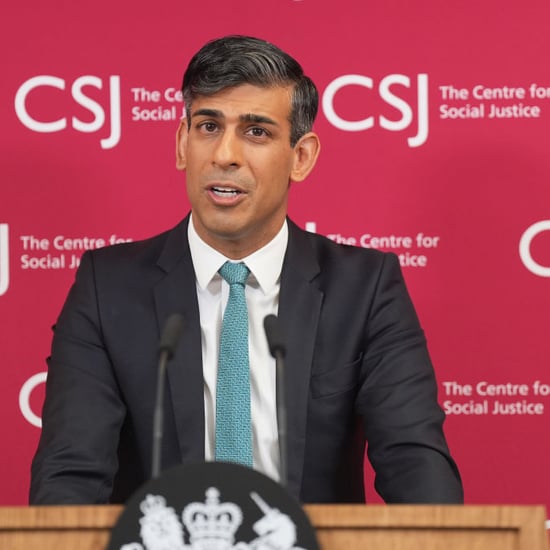Can You Exercise With Long COVID?
Why Long COVID Makes It So Difficult to Exercise

If you're struggling to complete a workout after having COVID-19, you're not alone. Millions of people are dealing with the effects of long COVID and studies suggest that over 89 percent are experiencing something called post-exertional malaise — a worsening of symptoms after exercise. You may have heard of this anecdotally: collegiate athletes unable to return to their sport, professional basketball players struggling to run up the court, Olympians feeling intense nausea after routine training sessions. Many patients with long COVID, or cases of COVID-19 in which symptoms linger for more than four weeks after infection, experience intense fatigue, shortness of breath, headaches, and joint pain from exercise. Some patients are unable to exercise at their previous level, even months or years after infection.
This isn't just a problem for elite athletes whose livelihood depends on their ability to exercise. Working out is a stress reliever to many and a source of endorphins. Plus, it benefits your heart, bones, and metabolism. Going without it for a long period of time can lead to a decline in mental and physical wellness, especially when you're already dealing with the emotional toll of long COVID.
The nature of long COVID, though, makes it impossible to know who will experience post-exertional malaise. "Long COVID manifests differently for different people" and symptoms are often "wide-ranging," says Linda Geng, MD, PhD, director of the Post-Acute COVID-19 Syndrome Clinic at Stanford. Research is ongoing and every patient's experience may be different, but here's what we know about exercise and long COVID right now.
How Does Long COVID Affect Exercise?
"We do not fully understand why some patients who have long COVID have difficulty tolerating exertion and exercise," Dr. Geng tells POPSUGAR, calling this an "active area of research." So far, though, scientists are exploring multiple potential causes.
- Blood vessel and nerve fibre damage: One small study, which involved 10 long COVID patients, found that some veins and arteries weren't working at max efficiency during exercise, thus delivering less oxygen to the muscles as they worked. Though the exact cause of this is unknown, a study by the same researchers noted that long COVID patients sustained damage to a nerve fibre involved in blood vessel and organ function.
- Heart issues: A small study published in November noted that a group of 29 women, who tested positive for COVID-19 three months earlier, displayed abnormal heart rates during a six-minute walking test; specifically, their heart rates didn't accelerate to the same degree or recover as quickly as women in the control group. There is also a link between COVID-19 and myocarditis, inflammation of the heart muscle that comes with symptoms like shortness of breath and fatigue. Some college and professional athletes with post-COVID myocarditis have shown reduced ability to train.
- The SARS-CoV-2 S1 protein: This protein is the first to bind itself to the surface of a body's cells, and it has been shown to damage endothelial cells, which line the inside of the heart and blood vessels and are activated during exercise. A recent study noted this as a potential link between long COVID-19 and difficulty with exercise.
- Mitochondrial damage: In a preliminary study released in January, patients with long COVID demonstrated signs of damage to the mitochondria, the organelles in cells that produce energy. The exact mechanism causing the damage was unclear, but weakened mitochondria could be linked to the fatigue and loss of endurance that many long COVID patients experience during exercise.
Can I Exercise If I Have Long COVID?
"Listen to your body and consult with your doctor," Dr. Geng advises. It's likely that your specific plan will be tailored to your symptoms and any underlying conditions you may have. Depending on your long COVID symptoms, your doctor might recommend a "strategy of rest and pacing with gradual return to prior level of activity," Dr. Geng explains. In other words, you might be able to slowly build back up to the frequency and intensity of exercise that you're used to. However, if you are actively struggling with post-exertional malaise, exercise might not necessarily be recommended. Again, it all depends on your body and your symptoms.
Dr. Geng also urges patients to speak with a healthcare professional who is knowledgeable about long COVID, due to its complexity and varied manifestations. "If available, seek out expertise at multidisciplinary post-COVID clinical centres," she says. In the meantime, research on long COVID and exercise is progressing as we speak, and will hopefully lead to better treatment in the near future. "Long COVID is a long-term public health problem impacting the function and quality of life of millions of people," Dr. Geng says. "Our knowledge about long COVID, including its relationship to exercise, will likely continue to evolve as research advances."
POPSUGAR aims to give you the most accurate and up-to-date information about the coronavirus, but details and recommendations about this pandemic may have changed since publication. For the latest information on COVID-19, please check out resources from the WHO, CDC, and local public health departments.








